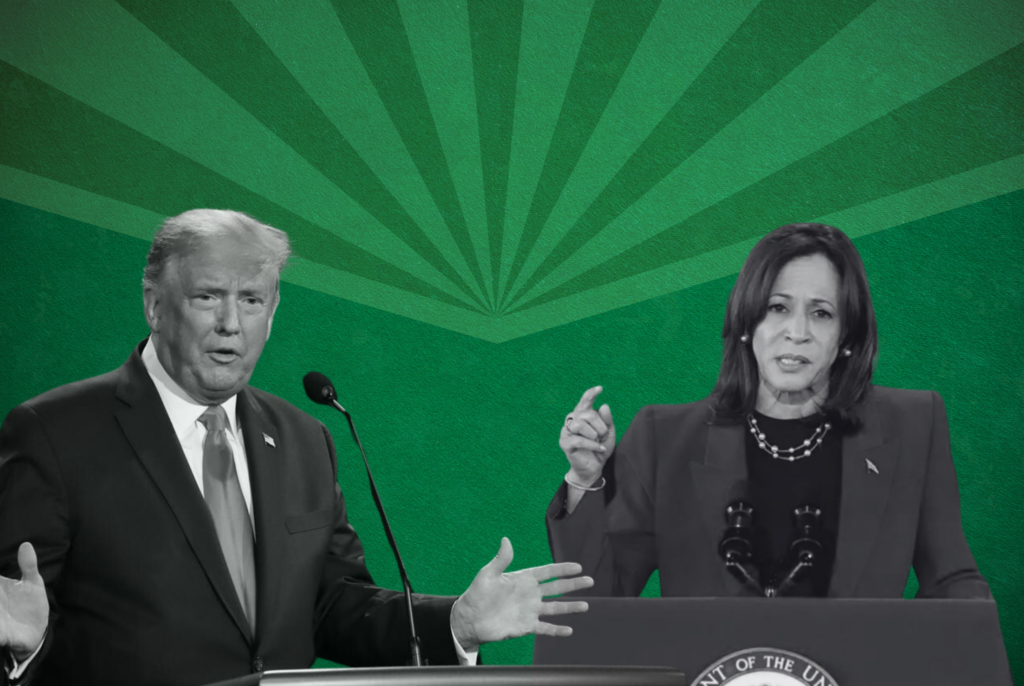Trump Can’t Stop the Clean Energy Transformation
Legal Planet: Environmental Law and Policy 2024-11-04


Here’s an uncontroversial proposition: if Donald Trump wins the election (a horrific thought), we will make less progress in attacking climate change than if Kamala Harris wins. His most recent remarks on climate were appalling: “They say global warming, they used to call it global warming but now they call it climate change. You know why? Because climate change covers it if it’s too cold. We are suffering from climate change. If it’s cold, it’s good. If it’s hot as hell, it’s good. It used to be Global Warming and that wasn’t working because we’re actually cooling.”
It’s hard to believe that in 2024, one of the two major candidates for the Presidency of the United States is spewing this pablum. And it’s not just talk. Trump has made clear that he will roll back the Biden Administration’s climate rules and will seek to undue at least parts of the Inflation Reduction Act. He’ll try to curb California’s power to cut greenhouse gases from cars and trucks. And he’ll pull the United States out of the Paris Agreement. These are reasons alone to vote for Kamala Harris.
But here’s a reality that Trump can’t avoid. The transformation to an economy fueled by clean energy – across sectors – has begun, and he can’t stop it. The transformation is occurring both domestically and globally.
More than 40 percent of all global power in 2023 came from renewable sources. China is the dominant market, followed by the United States. And investments in renewable energy are accelerating because prices have dropped dramatically: more than 80 percent of new electricity capacity around the world comes from carbon-free sources.
Though cutting emissions from the transportation sector is happening more slowly, the transition to zero emission vehicles is well on the way. EV sales in the U.S. hit a new high in the third quarter of this year, reaching 9 percent of all vehicle sales. U.S. automakers are now offering 117 EV models for sale. In California 25 percent of all new vehicle sales are electric and in the state of Washington, 20 percent. The global picture is even brighter; EVs account for almost one in five new vehicle sales. Global sales increased by 3.5 million vehicles from 2022 to 2023, a thirty five percent year over year increase. Fully 60 percent of new car sales in China were electric in 2023 and 25 percent in Europe. China’s sales have been propelled by high quality, low price EVs that are putting huge pressure on American and European automakers to compete.
Many of these trends began before Congress passed the Inflation Reduction Act, the most ambitious federal climate legislation ever enacted. The IRA will accelerate the trends. The legislation provides $800 billion to $1.2 trillion in tax incentives, grants and loans over ten years to stimulate faster and broader cuts in carbon emissions than would occur in their absence. Trump has threatened to undo the IRA if he wins.
But undoing Congressionally enacted legislation is far more difficult than repealing regulations (and even regulation repeal can be difficult, as the first (and hopefully only) Trump Administration found out when it lost 83 percent of court cases involving regulatory rollbacks.) Congressional repeal of the IRA seems especially unlikely given how many of the bill’s benefits are flowing to Republican Congressional districts and red states. 18 Republican members of Congress have already urged Speaker Mike Johnson not to repeal clean energy incentives in the IRA, arguing that “energy tax credits have spurred innovation, incentivized investment, and created good jobs in many parts of the country – including many districts represented by members of our conference.” And industries that are reliant on the incentives – car manufacturers, renewable energy developers, industrial emitters – will lobby hard to ensure that the benefits of the IRA continue to flow.
To be sure, a second Trump term would do serious damage to the ambitious regulatory climate agenda the Biden-Harris Administration has adopted to cut methane from the oil and gas sector, and to reduce emissions from cars, trucks and the power sector. It would throw a major monkey wrench in California’s world-leading climate program, though by no means derail it. And the lack of U.S. leadership in the international arena would be a serious blow to global cooperation and elevate China as the world’s climate leader. By contrast, a President Harris would not only continue the progress the Biden Administration has made but would expand it. Given the urgency we face in keeping global temperature increases as low as possible, we need these initiatives in place to come close to meeting our climate goals.
But despite the setbacks that would occur, the U.S. – and the globe – will not abandon the transition to clean energy. We have made too much progress in cutting our dependence on fossil fuel. Regardless of the outcome of the election, we aren’t going back.